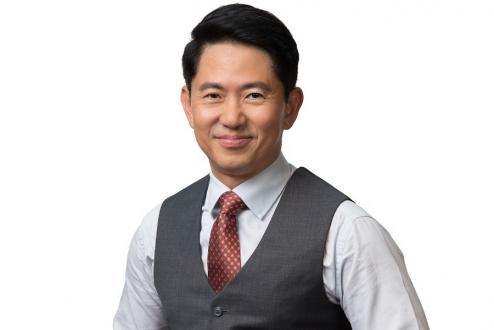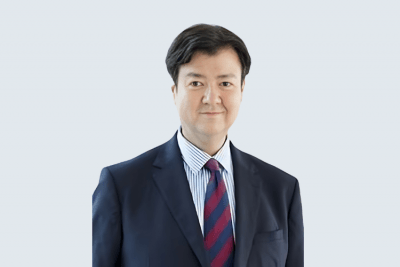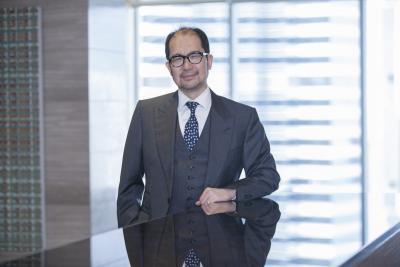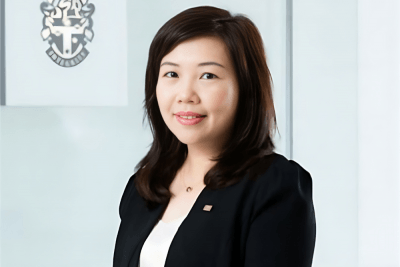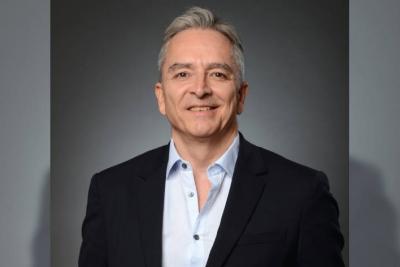Wealth Solutions & Wealth Planning
DBS’ Estate and Wealth Solution Expert Lee Woon Shiu on Future-Proofing Singapore as a Regional & Global Wealth Management Centre
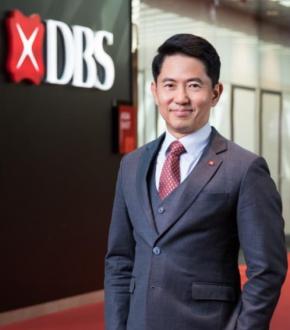
Lee Woon Shiu of DBS Private Bank
Aug 1, 2022
Lee Woon Shiu, Managing Director and Regional Head of Wealth Planning, Family Office & Insurance Solutions at DBS Private Bank, believes Singapore is a pre-eminent jurisdiction for the delivery of the most relevant wealth management solutions to meet the ever-expanding needs and expectations of the world’s HNW and UHNW clients. He is also one of the Hubbis go-to experts on these vital issues and sat as one of our expert panellists during the Asian Wealth Solutions event in Singapore on June 8. The panel drilled down into the current state of the Singapore wealth management market, the key advantages it offers regional and global clients, and how the island state is evolving its proposition. Woon Shiu articulated how Singapore has carved an enviable reputation as an innovator, a disruptor, an enabler and also an adaptor, and explained how the drive to stay ahead of the competition remains as intense as ever.
Woon Shiu opened his observations by remarking that Singapore offers many well-known ‘hardware’ advantages, but it’s the ‘software’ and mindset that really set the jurisdiction apart from the competition.
Four key advantages
“Singapore distinguishes itself in four key areas by being an innovator, a disruptor, an enabler and also an adaptor,” he reported. From the innovation perspective, he said Singapore is among the first in the world, if not the first, to systematically offer tax exemption benefits for family offices. He also noted that the ‘Section 13O & 13U’ suite of tax exemption schemes had “taken off like wildfire”.
“For families across the globe, these schemes make Singapore incredibly strong and appealing as a family office centre for their assets, and for coordinated control,” he explained. “Moreover, the families can relatively easily enhance their human capital deployment by basing family members in Singapore, and the doors to acquiring Singapore residency status will eventually open.”
He noted that Singapore, as a disruptor, gives other tax residency programmes and tax havens a run for their money by focusing on targeted client segments, such as founders of very high-growth businesses, start-ups and other ventures, as well as Next-Generation business owners of established companies. These clients can qualify for the Economic Development Board’s Global Investor Programme, if they fulfil certain requirements.
“By being able to spot and nimbly stay on top of these specific changes and demographic trends, and really going after the fastest-growing segments, Singapore is proving itself as a major disruptor as well as innovator,” he said.
Targeting rapid growth
As an enabler, he reported that Singapore is also embellishing its value proposition. For instance, he shared that KPMG has now ranked Singapore as the top tech innovation hub outside of Silicon Valley and San Francisco, with many regional or global names coming to town.
“The founders of these companies are looking at Singapore not just as a hub for its business; for some of their key shareholders, their founders are also coming to Singapore to explore wealth management options,” he explained. “That gives Singapore a lot of optionality to consider, in terms of areas outside of the core business.”
And fourth, Singapore’s speed of adaptation is remarkable, he said. “Beyond the success of the Section 13O & 13U suite of single-family office regimes, Singapore’s VCC regime for multi-family offices, which has been in place since 2020, is also producing remarkable results,” he reported. “We see many fund managers coming to Singapore, even more so in the last one year , and expect this pace to continue to pick up momentum and set Singapore apart as a financial hub for the region.”
Staying vigilant
Woon Shiu also focused attention on competition and challenges ahead, noting that while Singapore has moved ahead of the pack, other centres are also reacting and trying to catch up. He said Hong Kong, for example, is now awaiting official adoption of certain new tax exemption benefits.
“Singapore cannot sit still,” he observed. “But Singapore has been very smart in reading the signs, spotting which trends are coming and which are important, and then adapting the offering accordingly. To keep these investors and major private clients here, we need to constantly embellish our collective credentials, and that’s precisely what is happening. It is vital for multiple stakeholders to collaborate closely to help draw in the next wave of major wealth creators – for example, collaborating on a multi-faceted deal that helps a major global company and their family members to establish their hub in Singapore for both their corporate businesses as well as their private wealth management activities. Such deals are game-changers, and we must stay ahead of the pack.”
He added that another challenging area of evolution is that of taxes. He noted how at the World Economic Forum, over 136 countries said they would adopt the global minimum corporate income tax rate of 15%.
“How that will impact family offices as well as Singapore’s draw as a hub for families and enterprises is unknown at this point in time, so we are watching these developments like a hawk,” he cautioned. “We have to be very watchful that this does not erode some of the edges that we have. We need to stay ahead of the competition, within the framework of the agreed minimum corporate income tax rate.”

Managing Director & Group Head of Wealth Planning, Family Office & Insurance Solutions at DBS Private Bank
More from Woon Shiu Lee, DBS Private Bank
Wealth Solutions & Wealth Planning
The Growing Importance of Impact and Philanthropy amongst Asia’s Wealth Families
Latest Articles


